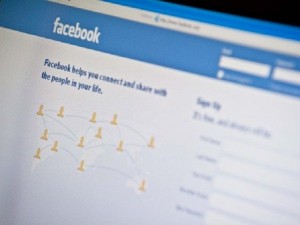NEW YORK – Some 900 million people like Facebook. But when they realize their private information is being bought and sold, some don’t like it so much.
The question of privacy and the use of personal data is a key issue for Facebook as the booming social network prepares to list on Wall Street.
That is because the freewheeling world of social media must give way to a business model of using the personal information on Facebook as a commodity for marketing and advertising.
Some consumer and privacy advocates say Facebook has been too loose with user data, and hope that as a publicly traded company after its initial public offering (IPO), it may change its tune.
Facebook has been “one of the biggest offenders of users’ privacy since the beginning,” said John Simpson, privacy project director for Consumer Watchdog.
“What they need to understand is that their business ultimately relies on its being trusted by users.”
Facebook has been bedeviled by privacy complaints and had its knuckles rapped over the issue by both US and European authorities.
Facebook co-founder Mark Zuckerberg has repeatedly apologized for privacy lapses amid outrage from users over revelations their online activities were visible to a wide audience of advertisers and other users.
Late last year, in a settlement with the US Federal Trade Commission, the social networking giant promised to honor users’ privacy preferences and to stop making claims about the security of personal information that are untrue.
That deal settled two-year-old accusations that Facebook, which has over 800 million users, had allowed advertisers access to the community’s personal data when users were told it was being kept private.
Erin Egan, Facebook’s chief privacy officer, on Monday unveiled more changes aimed at making it easier to control the use of private data.
“We’re adding more examples and detailed explanations to help you understand our policies,” Egan said.
“For example, we include additional tips, marked with a light bulb so you can find them easily. We’ve added new links to our help center. We created a new section explaining how we use ‘cookies’ and similar technologies… We also provide more information about how we use data to operate Facebook, to advertise, and to promote safety and security for Facebook users.”
The wrath of Internet users gelled over privacy issues in 2010 in a “Quit Facebook Day” movement, which claimed over 30,000 Internet users had responded to an effort urging people to leave the site.
A Consumer Reports survey released this month found many users of Facebook are unaware of the privacy risks from the massive social network site or fail to take adequate precautions.
The report found nearly 13 million US Facebook users do not use, or are not aware of the site’s privacy controls.
An estimated 4.8 million Americans have posted about where they planned to go on a certain day — a potential tip-off to burglars, the report noted.
And it found that 4.7 million have “liked” a Facebook page about health conditions or treatments, details that insurers might use against them.
The issues have done little, however, to halt Facebook’s expansion, which has seen the network soar to the top of the social media tree.
Another controversy involving Facebook has arisen because of reports that some employers have asked for Facebook passwords before hiring people. This has incensed some lawmakers.
Facebook says it is not to blame for this or other abuses of its policies.
“Our efforts to protect the information that our users have chosen to share using Facebook may be unsuccessful due to the actions of third parties, software bugs or other technical malfunctions, employee error or malfeasance, or other factors,” the company said in a regulatory filing.
“In addition, third parties may attempt to fraudulently induce employees or users to disclose information in order to gain access to our data or our users’ data. If any of these events occur, our users’ information could be accessed or disclosed improperly.”
Simpson said that as a result of the IPO, “all of their practices are going to be under much closer scrutiny, and that’s a good thing. It may make ultimately make them more accountable and responsible.”


